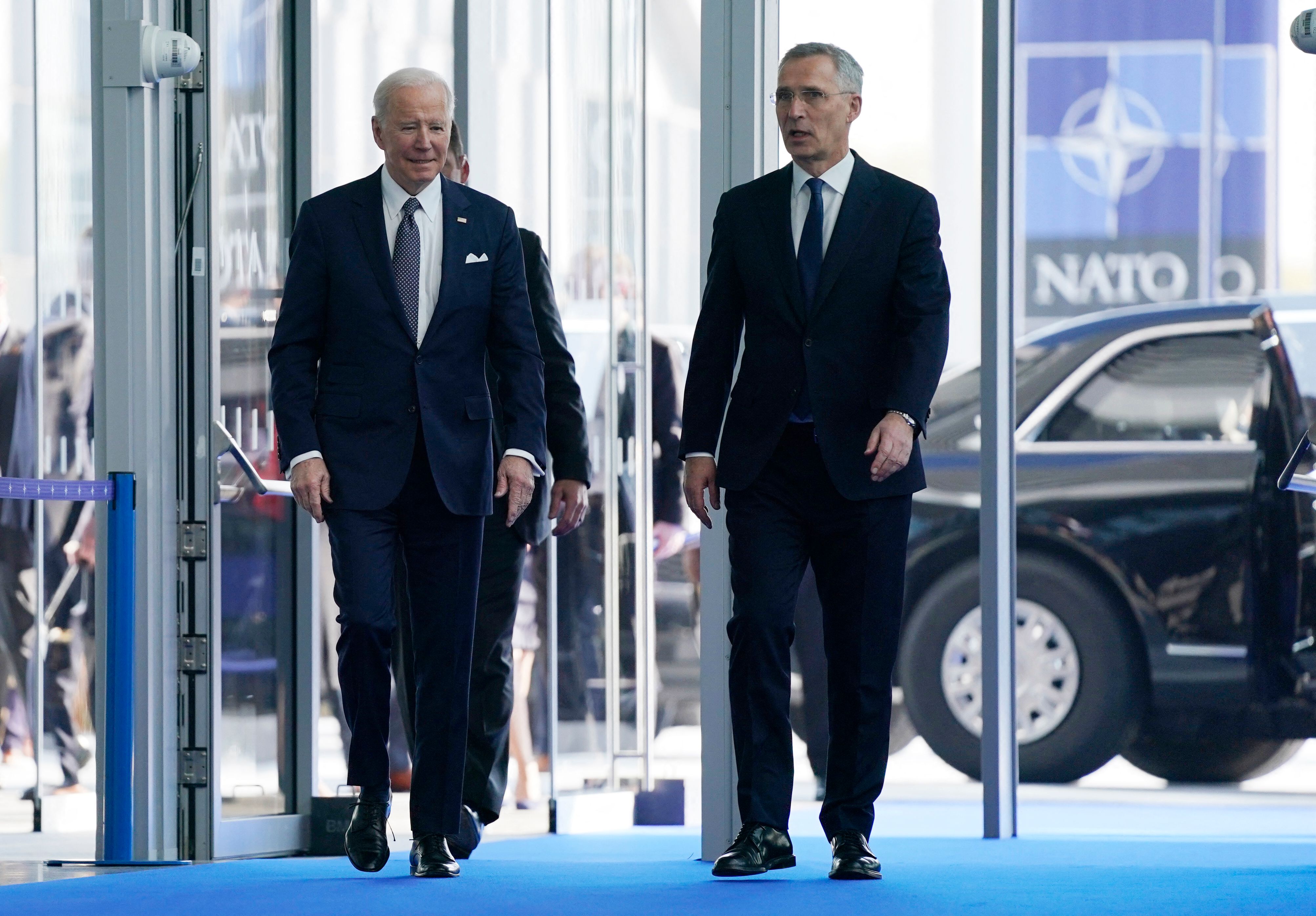Biden’s Involvement with NATO

Biden nato – Joe Biden has a long history of involvement with NATO, dating back to his time as a senator from Delaware. He has been a strong supporter of the alliance throughout his career, and he has played a key role in shaping NATO policies and initiatives.
Biden’s Role in Shaping NATO Policies and Initiatives
As a senator, Biden was a member of the Senate Foreign Relations Committee. In this role, he helped to draft and pass legislation that supported NATO and its mission. He also worked to strengthen the alliance’s ties to other international organizations, such as the European Union.
Biden’s recent reaffirmation of NATO’s commitment to collective defense has drawn both praise and criticism. For the latest on Biden’s stance on NATO and other news related to the US president, visit joe biden news. Despite some concerns, Biden’s emphasis on the importance of NATO unity is a reminder of the alliance’s enduring relevance in the face of ongoing global challenges.
Biden’s support for NATO has continued during his time as vice president and president. He has worked to strengthen the alliance’s collective defense capabilities and to promote transatlantic cooperation on a range of issues, including climate change, energy security, and counterterrorism.
Biden’s commitment to NATO has been a key aspect of his foreign policy, and he has repeatedly emphasized the importance of the alliance in ensuring European security. In a recent interview , Biden reaffirmed his support for NATO and pledged to continue working with allies to strengthen the alliance.
Biden’s commitment to NATO is a reflection of his belief that the alliance is essential for maintaining peace and stability in Europe.
Biden’s Efforts to Strengthen the Alliance and Promote Transatlantic Cooperation, Biden nato
Biden has made a number of efforts to strengthen the NATO alliance and promote transatlantic cooperation. These efforts include:
- Increasing US military spending on NATO
- Deploying additional US troops to Europe
- Working to resolve disputes between NATO members
- Promoting dialogue and cooperation between NATO and other international organizations
Biden’s efforts have helped to strengthen the NATO alliance and to promote transatlantic cooperation. The alliance is now more united and capable than ever before, and it is playing a vital role in addressing the challenges facing the Euro-Atlantic region.
NATO’s Response to Biden’s Presidency: Biden Nato
Upon Biden’s election as US President, NATO welcomed his commitment to strengthening the transatlantic alliance and restoring America’s global leadership. Biden’s presidency marked a significant shift in US foreign policy, particularly regarding NATO, after the previous administration’s strained relationship with the organization.
Under Biden’s leadership, NATO’s stance shifted towards a more assertive approach to deterring Russian aggression and addressing new security challenges. The alliance reaffirmed its commitment to collective defense and increased its military presence in Eastern Europe. Additionally, NATO expanded its focus on non-traditional threats such as cyberattacks and hybrid warfare.
Biden’s policies had a significant impact on NATO’s operations and decision-making. His administration increased defense spending, strengthened cooperation with NATO partners, and engaged in dialogue with Russia to reduce tensions. These actions contributed to a more cohesive and responsive NATO, capable of addressing the evolving security landscape.
Biden’s Impact on NATO’s Future

The Biden administration has brought about a significant shift in the United States’ approach to NATO. Biden’s presidency has been characterized by a renewed commitment to multilateralism and a desire to strengthen the alliance. This has had a positive impact on NATO’s long-term direction, and the alliance is now better positioned to meet the challenges of the 21st century.
Challenges and Opportunities
One of the challenges that NATO faces under Biden’s leadership is the rise of China. China’s growing military power and economic influence pose a significant challenge to the alliance. NATO must adapt to this new reality and develop new strategies to counter China’s growing influence.
Another challenge that NATO faces is the ongoing conflict in Ukraine. Russia’s annexation of Crimea in 2014 and its continued support for separatists in eastern Ukraine have raised concerns about NATO’s ability to deter Russian aggression. NATO must continue to support Ukraine and provide it with the assistance it needs to defend itself.
Despite these challenges, NATO also faces a number of opportunities under Biden’s leadership. The alliance is now more united than it has been in years, and there is a growing consensus among member states that NATO is essential to their security. This unity will be essential for NATO to meet the challenges of the 21st century.
Impact on Global Security and Stability
Biden’s policies have had a positive impact on NATO’s role in global security and stability. Biden’s commitment to multilateralism has helped to strengthen the alliance and make it more effective in addressing global challenges. The alliance has also played a key role in supporting Ukraine and deterring Russian aggression. NATO is now better positioned to meet the challenges of the 21st century and contribute to global security and stability.